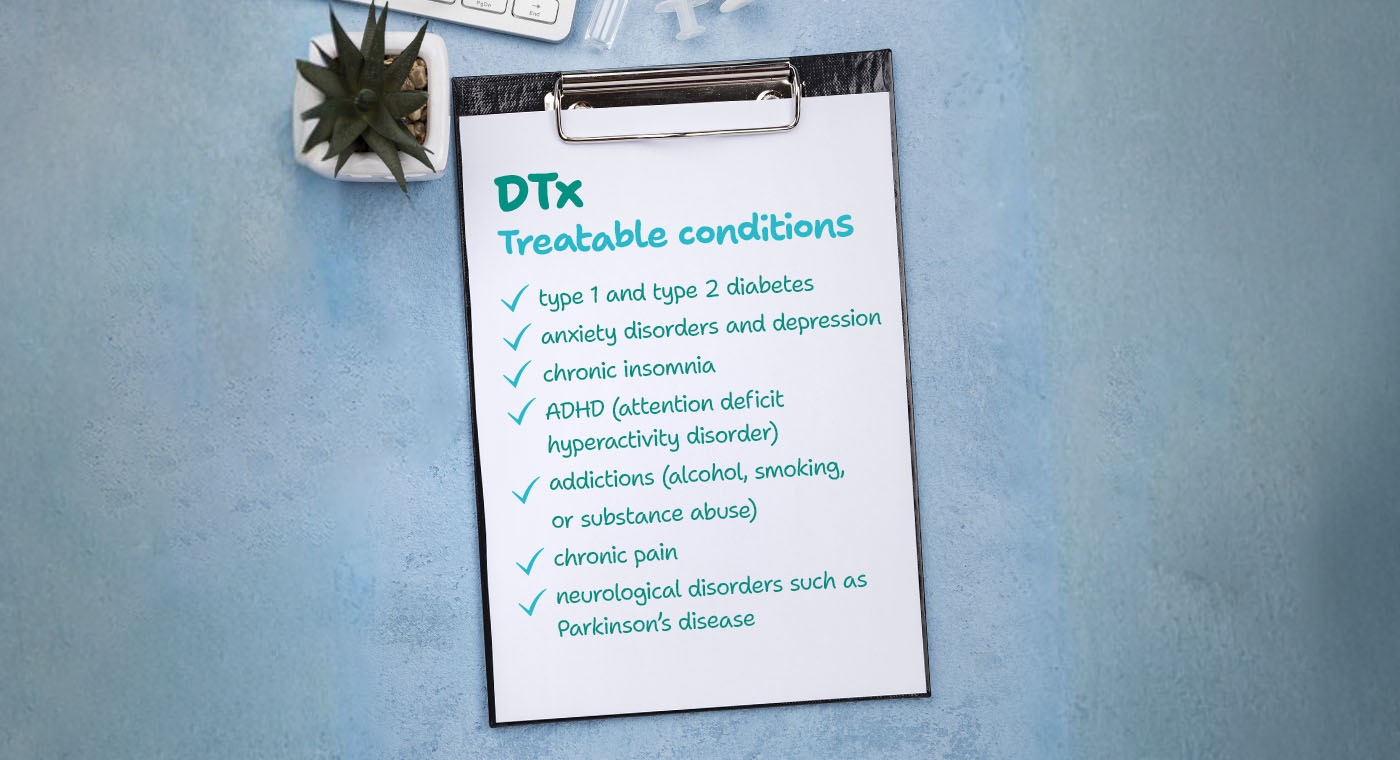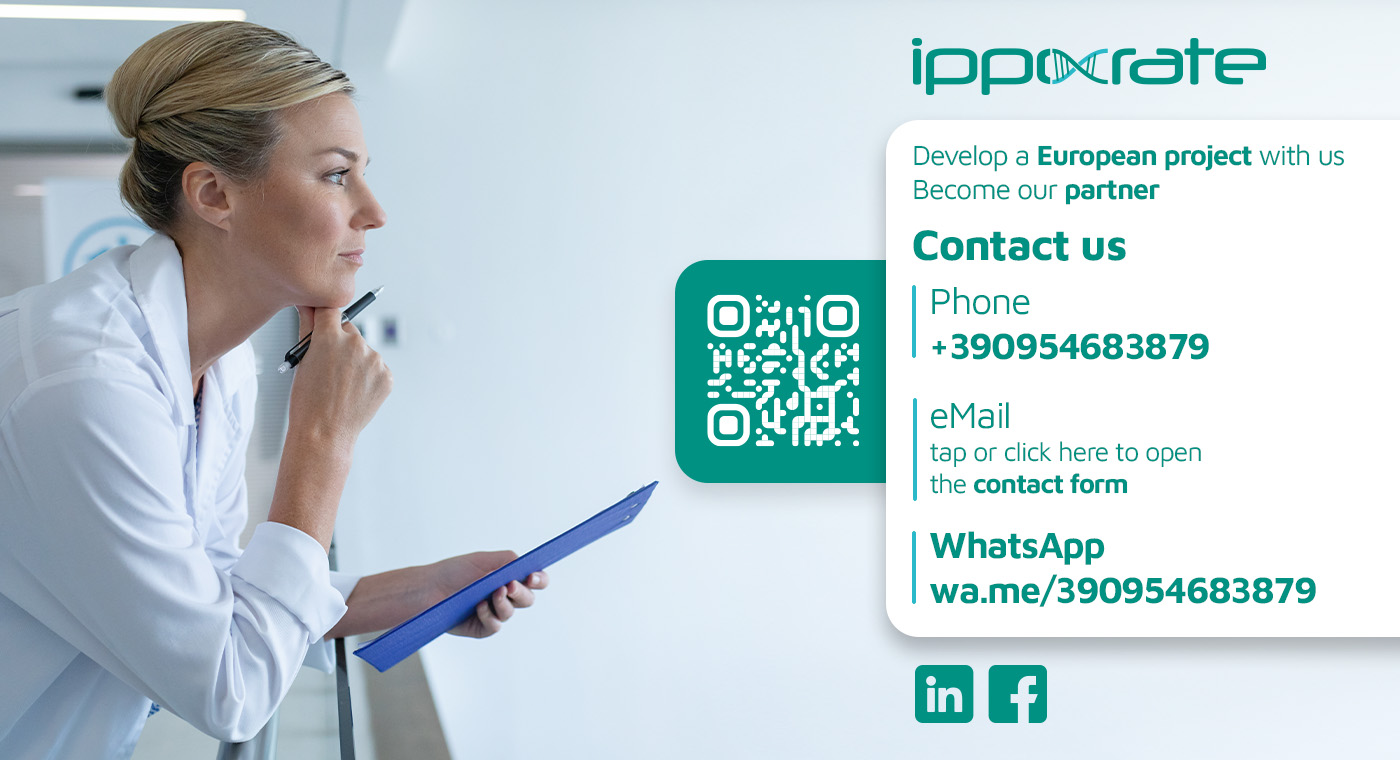Digital therapeutics (DTx) are rapidly emerging as one of the most innovative pillars of modern healthcare. But what exactly are DTx? How do they work? And why might they change the way we treat patients? Let’s explore the answers—and discover how DTx are shaping the future of care.
Table of contents
What Are DTx (digital therapeutics)?
Digital therapeutics are software-based therapeutic interventions designed to prevent, manage, or treat medical—often psychological—conditions. Unlike basic wellness or fitness apps, DTx solutions undergo rigorous clinical validation, making them eligible for prescription just like traditional medications.
According to the Digital Therapeutics Alliance, a DTx must be supported by robust clinical evidence, receive regulatory approval (such as the CE mark in Europe or FDA approval in the United States), and be integrated into a personalized care pathway. This care may include cognitive behavioral therapy for mental health conditions, or digital monitoring for chronic illnesses like diabetes.
How do they work?
A DTx typically comes in the form of a web app, mobile app, desktop software, or online platform, making it accessible to patients via smartphone or computer.
Its functionality may include:
- tracking symptoms or vital signs in real time;
- delivering personalized therapies (e.g., cognitive or breathing exercises);
- providing continuous feedback from clinicians;
- adapting the treatment path based on patient response.
The goal is to complement or even replace traditional therapies, improving patient adherence, reducing healthcare costs, and enhancing clinical outcomes.
Do DTx replace traditional medications?
Not always. Digital therapeutics can complement, enhance, or—in specific cases—replace pharmacological treatments, but they do not systematically substitute traditional medications.
For chronic or behavioral conditions (such as insomnia, anxiety, or ADHD), DTx can offer a valid non-pharmacological alternative, reducing the need for medication and minimizing potential side effects. In other cases, they are used alongside medications to boost the overall effectiveness of the treatment and support patient adherence. The choice depends on the type of condition, individual response, and the clinical guidance provided by the physician.

Conditions treatable with DTx
DTx are particularly effective in areas where behavioral or cognitive components play a significant role. Key conditions that can be treated include:
- type 1 and type 2 diabetes;
- anxiety disorders and depression;
- insonnia cronica;
- ADHD (attention deficit hyperactivity disorder);
- addictions (alcohol, smoking, or substance abuse);
- chronic pain;
- neurological disorders such as Parkinson’s disease.
In Italy, pilot projects are already underway. For example, at the Giovanni XXIII Pediatric Hospital in Bari, DTx are being used to treat childhood obesity and eating disorders, with promising results.
The Italian regulatory framework
In 2022, Italy’s Ministry of Health officially recognized DTx as a category of digital therapeutic intervention. Furthermore, telemedicine and digital healthcare are among the strategic objectives of the NRRP (National Recovery and Resilience Plan), accelerating the adoption of DTx nationwide.
However, the process of integrating DTx into the essential levels of care (LEA) is still being defined. In a recent report, Farmindustria emphasized the urgent need for a clear regulatory framework to support the prescription and reimbursement of these solutions.
Benefits for patients and the National Healthcare System
Among the main benefits of DTx, we highlight:
- accessibility: digital therapies remove geographical barriers, making treatments available even in remote areas;
- personalization: powered by artificial intelligence (AI) and data analysis, DTx solutions tailor interventions to individual patient needs, increasing overall effectiveness;
- cost reduction: DTx help lower expenses for both the National Healthcare System and patients, optimizing disease management;
- real-time monitoring: DTx enable healthcare professionals to track patient progress in real time, significantly improving the quality of care delivered.
Developing new DTx: a realistic challenge
DTx are not a passing trend, but a strategic pillar of modern medicine. In countries like Italy—facing an aging population and increasing pressure on the healthcare system—digital therapeutics offer a concrete, safe, and scientifically validated solution.
To make this a reality, it is essential to invest in education, clinical research, public-private partnerships, and regulatory modernization. Universities, research institutions, startups, and healthcare companies must collaborate to bring DTx from the lab into everyday clinical practice.
Find out how we can help. Get in touch
IPPOCRATE AS, a well-established company within the JO Group, is committed to developing m-health and e-health technologies—and ready to help you integrate digital therapeutics into your healthcare system.
Co-develop a DTx project with us. Become our partner. For over 20 years, we’ve been delivering software solutions for both public and private healthcare providers. We actively participate in R&D initiatives within both Italian and European consortia. Contact us today!
- Phone: +390954683879
- eMail: fill out the contact form to get in touch
- WhatsApp: <a href=https://wa.me/390954683879wa.me/390954683879
Let’s build the future of healthcare—together.

